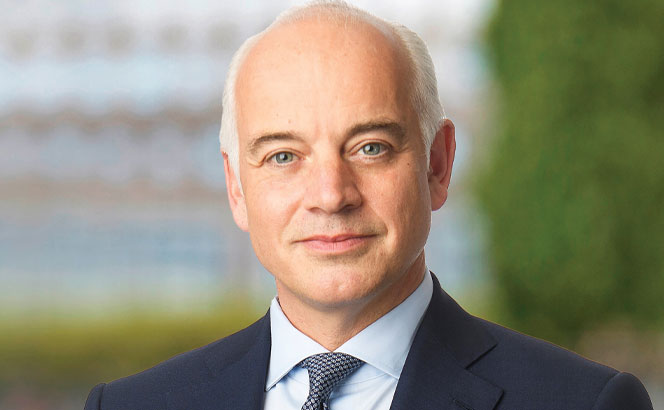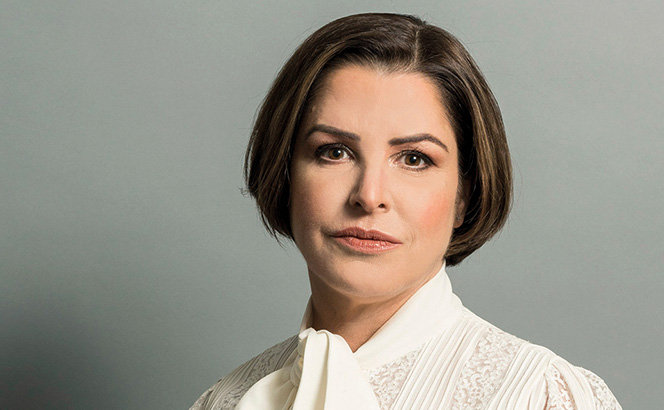When Legal Business first launched its Disputes Yearbook back in 2014 Brexit was barely on the radar, most people had not heard of Wuhan and post-financial crisis disputes work and oligarchs were helping firms cast aside any doubts about how sustainable further disputes growth was at either the biggest players in the City or the boutiques spinning out from them.
While much has changed, many of the key market players are still the same today and some of the bigger trends keeping litigators busy now were still evident a decade ago – albeit in nascent form.
Take one of the biggest disputes stories of recent years – the development of the group actions regime and the introduction of opt-out claims in the Competition Appeals Tribunal (CAT).
This work has pushed many firms to strengthen their competition litigation expertise and helped a clutch of disputes-only firms achieve prominence, not to mention supported the growth of the UK litigation funding market and spurred the development of a true claimant Bar. But firms were still talking about it and – in the case of Herbert Smith Freehills (HSF) – writing books about it last decade.
Facts and figures
In truth, while the work firms are doing has evolved over the years, much of it is still being done by the same firms. Disputes heavyweight HSF for example has held onto its top tier Legal 500 ranking for commercial litigation consistently and almost doubled its revenue from contentious work from £320m in 2014 to £569.3m during the last financial year, despite London partner numbers in the disputes team staying broadly the same at around 50.
While practice areas such as private equity have seen significant changes at the top of the Legal 500 rankings, for premium commercial litigation in London there are only two firms ranked in the top tier that were not there in 2014 – Quinn Emanuel, which moved up in 2021, and Slaughter and May, which moved up in 2024. Clifford Chance, Freshfields, and Hogan Lovells have all been consistently ranked at the top, with Hogan Lovells notching a particularly impressive £752m in disputes revenue in 2024.
Quinn Emanuel aside, US firms are yet to make their mark at the very top of this ranking in the same way they have in some transactional areas.

‘There’s been significant growth in really big cases, which are high-value, involve huge numbers of potential litigants, and often play out across multiple jurisdictions.’ Simon Day, Macfarlanes
As Ashurst dispute resolution head Jon Gale comments: ‘US firms have put a footprint on the market’, but they have not dominated. Many London litigators put this down to two factors: the longer timespan of litigation that makes it harder to buy-in market share quickly through just a few key hires; and US firms’ reluctance to build the kind of big benches needed to handle the large claims that are so crucial to top-level London disputes.
Recruiters also observe that disputes partners tend to move less frequently than corporate, a point backed up by the fact that of the 37 names in the Legal 500 Hall of Fame for premium commercial litigation today, only eight have moved firms over the last ten years.
Gale notes that US firms have been ‘more successful in the arbitration space than in litigation’. This is borne out in the Legal 500 data where there is not a single Magic Circle firm in the top tier for arbitration in the most recent research. Instead, the top spots are split between US firms Debevoise & Plimpton, King & Spalding, Skadden, WilmerHale, and White & Case. They sit alongside HSF, and 2014-founded London-Paris-Washington DC arbitration boutique Three Crowns.
In contrast, disputes only firms – whether large like Quinn or small like Three Crowns – have made more of an impact across the practice rankings.
HSF’s former disputes head Damien Byrne Hill describes the change in these boutiques over the last ten years as making the market ‘a different world’.
Of the 64 firms ranked for premium commercial litigation in 2024, seven (11%) are disputes-only. This is up from eight specialists out of a total of 123 firms ranked for commercial litigation in 2014 (7%). Quinn Emanuel, Stewarts, Enyo, Cooke, Young & Keidan, and Signature Litigation all made their way straight into the premium ranking when commercial litigation was split into premium and mid-market in 2021.
They were joined by Hausfeld, which was founded in 2009 and first ranked for competition litigation in 2015 before winning a space in the commercial litigation rankings in 2017; Seladore, which was founded in 2020, first ranked for banking litigation in 2023, and joined the premium commercial litigation table in 2024. Finally, Boies Schiller spin-out Pallas Partners was established in 2022, first ranked for banking litigation in 2023, and entered the commercial litigation rankings in tier six last year.
ESG and data: mass claims in two growing sectors
Regardless of whether a firm is a large UK player, a US giant or an independent boutique the activity trends are the same.
Macfarlanes partner and competition litigation and multiparty disputes specialist Simon Day points to the increase in large-scale ‘mega’ claims: ‘There’s been significant growth in really big cases, which are high-value, involve huge numbers of potential litigants, and often play out across multiple jurisdictions.’
For Byrne Hill, lawyers’ ability to handle these cases has gone from a specialism to ‘part of the toolkit for everyone who does litigation’.
As a result of this change and the growth in disputes work generally, firms have stacked their disputes benches both in the UK and worldwide (see box) to enable them to meet the needs of clients involved in mammoth claims.
Stephenson Harwood fraud and asset recovery team lead Ros Prince points to the ‘significant development of specialism throughout the market’ as a related shift, as firms promote and hire partners with niche expertise in areas from IP and regulatory to arbitration, insurance, and competition.
Mega litigation is not limited to any one sector. But litigators do highlight particular areas of activity.
Chief among them right now is ESG – an acronym that has surged to prominence over the last decade, and is now ever-present in law firm promotional materials and at conferences, not to mention the public consciousness, the press, an expanding web of regulation and, ultimately perhaps, the courts too.

‘Data is the perfect fit for collective actions. Everyone uses data, so you have a huge pool of potential claimants.’ Lawson Caisley, White & Case
Firms and claimants are enthusiastic about the future of ESG litigation, with the high-profile failure of ClientEarth’s derivative action against Shell doing little to dampen spirits (see ‘Cases of the year’ for more on environmental claims).
‘We’re seeing more activism playing out through litigation’, notes Leigh Day partner Meriel Hodgson-Teall. ‘Sometimes claims will have a campaigning element to them. Charities and NGOs also have an important role to play and will sometimes use litigation as a way to help achieve their aims.’
Some doubt the prospects of this sort of claim though, with Helen Carty, London head of litigation and dispute resolution at Clifford Chance warning that ‘litigation is generally more suited to claiming damages’ than spurring changes in behaviour.
ClientEarth v Shell may have closed the shareholder derivative action route, but activists will be watching with keen eyes the progress of cases such as the mega class action over the Fundao Dam collapse and prospective claims against UK water companies (see ‘Cases of the year’).
Despite all of the talk and activity, some litigators are sceptical about exactly how this activity will shift the disputes market in the long term. ‘There’s a lot of commentary that ESG litigation will be big, with people looking at the extent to which greenwashing, corporate behaviour, and corporate governance will drive future litigation,’ says Mark Molyneux, head of group disputes at Addleshaw Goddard. ‘But E, S, and G each cover a wide range of issues. As yet it is unclear how that will play out, who are the claimants and what are the causes of action that claimant firms are targeting.’
Gale is of a similar view: ‘ESG litigation is such a broad concept, encompassing a range of quite different types of dispute. There are things that would now be regarded as ESG litigation that we were [already] doing ten years ago. There absolutely were cases about things like environmental contamination and parent company liability, for example, but they weren’t called ESG litigation.’
Away from ESG, litigators point to data as a key area for future mass claims. ‘Data is the perfect fit for collective actions,’ explains Lawson Caisley, head of commercial disputes at White & Case. ‘Everyone uses data, so you have a huge pool of potential claimants. The evidential issues facing potential claimants can also be less complex as there is usually a record of whose data has been impacted. If you or I bought a packet of nuts six years ago, it’d be hard to prove in any group action based on that purchase because we don’t tend to keep receipts from Sainsbury’s from six years ago. But it should be relatively easy to prove that our data was included in a data breach.’
The route by which data group actions can be brought is by no means clear though.
The Supreme Court in Lloyd v Google [2021] struck out a representative action against Google. ‘But famously,’ notes Freshfields global disputes head Sarah Parkes, ‘it didn’t shut the door’, leaving scope for claims under the GDPR and where claimants can establish that class members had suffered compensable harm.
Claimant firms and funders have their eyes on a bigger prize though: opt-out claims. As opt-out claims can only be brought in the CAT, they must be formulated as competition claims. Results so far have been mixed – but there are encouraging signs. Chief among them was the CAT’s January certification of a reformulated claim against Meta. Of course, certification does not mean success, and any flood of litigation in this area is unlikely until the first claimant wins at judgment.
As Gale notes: ‘Many of those cases where a consumer law claim has been framed as a competition issue may start to fall down as they get to trial. There’s a much higher standard to be met at trial compared to certification.’
Still, there is little reason to disagree with Parkes’ assessment that ‘we’re going to continue to see the envelope being pushed in relation to data claims.’
Stopping the bus going off the cliff: the changing roles of litigators and courts
The shifts in the type of litigation that can be brought and the move towards mega cases and group claims has also changed the way litigators engage with clients.
‘It used to be easier to contain litigation risk,’ says Caisley. ‘Companies’ key exposure tended to be to regulators and commercial counterparties, and so they could exert a high degree of control over their risk of being sued. The threat of mass claims didn’t really exist in this jurisdiction. That has now changed. If you’re operating in a jurisdiction where mass claims can be brought, that changes how the boardroom sees litigation. Large corporates are now managing their business with an eye to the possibility that, if they suffer an event that affects a lot of people, the risk of a mass claim against them is increasingly real.’
Paul Lewis, joint managing partner of HSF’s global disputes practice, makes a similar point: ‘Litigators are often the people you don’t want to see. But because class actions are a threat for effectively everyone now, businesses know they need to understand the risks.’
As Caisley comments: ‘A lot of a litigator’s skillset is risk management. Yes, we deal with what happens after the bus has gone off the cliff. But our job is also to try to stop the bus going off the cliff in the first place.’
Courts, too, are adapting to this new world, with several of the cases highlighted in our cases of the year feature demonstrating a willingness to both hear and actively manage a far wider range of large claims.
‘One of the themes that comes out of these cases,’ notes Day, ‘is that the damage is often suffered in another jurisdiction, but claims are brought in the English courts against a UK holding company. The courts are increasingly willing to hear these sorts of claims.’
These developments lend force to the assertion, near-universal among London disputes partners, that the English court system remains capable and robust enough to assure the jurisdiction’s status as a top venue for dispute resolution for clients from all around the world.
‘Global companies facing significant disputes have confidence that the English courts remain unbiased and high quality,’ says Caisley. Fears that the uncertainty of Brexit would cause global corporates to seat their disputes elsewhere have proven unfounded.

‘Sophisticated clients were never going to start writing contracts to the local law of European countries. London still has certainty of process and some of the top judges in the world.’ Natasha Harrison, Pallas Partners
‘Sophisticated clients were never going to start writing contracts to the local law of European countries,’ argues Natasha Harrison, who founded Pallas Partners in 2022 after leaving Boies Schiller Flexner the previous year. ‘London still has certainty of process and some of the top judges in the world.’
Indeed, Brexit may even have increased activity, incentivising the Competition and Markets Authority (CMA) to, in Freshfields London managing partner Mark Sansom’s words, ‘assert itself on the world stage as a serious, tough but fair regulatory authority’.
As Parkes adds: ‘There was a sense after Brexit that competition law in the UK would ossify. Obviously that hasn’t happened.’ On arbitration, too, ‘the UK has remained a strong, well established, arbitration-friendly jurisdiction’, observes Simmons & Simmons disputes partner and global AI lead Minesh Tanna.
Mega cases and the litigation funding explosion
Regulatory activity provides an important framework for competition disputes – and the courts deserve praise for the way they have embraced the challenges of mega claims. But the group litigation boom would not have been possible without litigation funders. The courts can only respond to claims. And many mass claims would never be brought without access to litigation funding.
‘Group litigation and litigation funding have grown hand in hand,’ says Nicola Vinovrški, partner at Milberg London, a claimant boutique established in 2020. Hodgson-Teall agrees, adding: ‘The explosion of litigation funding has changed what’s possible and the scale of the litigation that’s being brought.’
Litigation funding has been permitted in some form in England and Wales since 1967. But it was not until the 1990s and 2000s that the sector began to take off. Legal 500 introduced its litigation funding ranking in 2023. The three top-tier funds Bench Walk Advisors, Harbour Litigation Funding, and Therium were founded in 2017, 2007, and 2009, respectively. The Association of Litigation Funders (ALF) was established in 2011, the same year as the release of the official Code of Conduct for Litigation Funders, while the International Litigation Finance Association launched in Washington DC in 2020.
How technology is changing disputes
‘The increase in the amount of data litigators have to handle is genuinely exponential’, says HSF’s Damien Byrne Hill. ‘It’s a bit like castles getting thicker walls and cannons getting better at firing through those walls. As fast as people can develop tools to interrogate the data and identify the important bits, the amount of data just keeps multiplying.’
And disputes lawyers are using tech to build ever more powerful cannons. As Ashurst’s Simon Bromwich comments: ‘It’s now day-to-day business for a litigation practice to deal with huge document loads. We need technology to search through those huge loads, and that’s now blessed by the courts. It was really in its infancy ten years ago but now it’s in its element. And, with the development of AI, it will keep growing over the next ten years.’
In addition to third-party AI tools such as Harvey, which is backed by OpenAI’s startup fund and used by firms including Allen & Overy and Macfarlanes, the market is also witnessing the growth of dedicated litigation analytics tools and vendors.
Solomonic is one such example – an analytics platform that tracks the progress of cases through the courts and allows lawyers to identify trends in sectors, value, and types of claim. Linklaters has used Solomonic since April 2022, and last November announced a partnership to help it develop a module to analyse cases in the CAT.
Another is Somos, a group action management company established in Brazil in 2019, in part in response to the novel case management issues thrown up by the ongoing mass claim against BHP over the collapse of the Fundao Dam (see ‘Cases of the year’, page 6). Mishcon de Reya acquired Somos in February 2024, hiring in founders Pedro Martins and Tomás Mousinho as equity partners. The acquisition adds to the firm’s portfolio of litigation solutions, which also includes MDR Solutions, a litigation financing venture launched by the firm in September 2021, with support from major litigation funder Harbour.
Litigators’ eagerness to discuss the potential impact of generative AI and other technologies on their practices outstrips their willingness or ability to make concrete predictions about how such technologies will be used and what level of investment will be required. There is good reason for this: even among tech industry specialists there is little consensus on the pace and scale of the change that tools like AI will unleash. In the legal sector, partners reach for analogies. Some argue that AI will be equivalent to the typewriter or the word processor – a tool that massively reduces the burden of mundane tasks such as document review and drafting. Others, that ‘it’s more like the invention of electricity: the use-cases aren’t obvious yet, but it makes an enormous number of things possible’.
For now, firms are eager to find the sweet spot in terms of investment – putting enough money in that they can harness and benefit from technology, but avoiding spending so much that it hits their bottom line. What’s clear though, is that the sort of mega cases that are increasingly dominating the London market cannot be properly handled without significant tech investment.
The Supreme Court’s 2023 PACCAR ban on percentage-based litigation funding agreements (LFAs) is widely seen as little more than a bump in the road. And this year justice secretary Alex Chalk KC announced plans for a legislative reversal and a wider review of the funding sector – a decision interpreted, in the words of Clifford Chance’s Maxine Mossman, as ‘trying to signal that as a jurisdiction we’re supportive of third-party litigation funding, not least on the grounds of access to justice’.
Stewarts head of aviation and international injury risk and funding partner Julian Chamberlayne is similarly positive: ‘It’s pleasing to see the CAT certify more opt-out claims and building a head of steam,’ he says. ‘It’s been impeded a bit by PACCAR, of course, but routes are being found through that.’
In addition to offering funders high returns, group litigation also has a clear access to justice argument working in its favour, enabling claims from those who would otherwise have been unable to pay for litigation, particularly against major corporates. But funders are keen to stress that they are not solely interested in group claims, with a more diversified portfolio of cases allowing them to better hedge against the risks of one or two big losses. This pursuit of opportunity has even seen funders go beyond funding cases to back law firms in recent years. Bench Walk kicked this trend off when it helped launch Pallas Partners. Harbour meanwhile agreed a £33m facility with Slater and Gordon in 2023.
With firms under ever more intense pressure to compete for market share, and with many predicting big investments in technology on the horizon, it is possible that funders may further extend their activities backing firms.
The rise of group litigation and funding are far from the only stories of the London disputes market over the last ten years though.
‘Ten years ago, there was more Russian oligarch work,’ notes Simon Bromwich, who headed Ashurst’s dispute resolution practice before Gale after serving as the firm’s managing partner from 2004 to 2012. ‘Now, notwithstanding events of the last couple of years, no-one thinks they’ll be doing enough of that to eat up their time.’
The rash of banking sector work that followed the 2008 financial crash is also in the past: ‘Ten years ago we were doing a huge amount of banking work’, says Carty, ‘now things look very different.’ Worldwide government support prevented any comparable financial meltdown after 2020, and it is too early to say just how much countercyclical disputes work will be generated by the economic storm clouds that have gathered over the UK since 2022.
Martin Davies, global vice chair of Latham & Watkins’ litigation and trial department, says: ‘In reality the big trend now is a number of these individual trends merging together. You don’t just get an ESG case anymore – chances are it’s an ESG case against a banking background involving shareholders in a class action. Or you see things like alleged misuse of data by a dominant corporate – again you have data, competition, and class actions all bundled in. We’re going to see more and more of these things combining, merging into really large cases, where legal teams are going to have to be adept at data, class actions, ESG – all of it.’
While the factors changing the disputes market are clear, what is less clear at this point is whether anything will shift the dynamics of the firms operating at the top of the London market. Only time will tell whether anything will prompt more aggressive recruitment moves by US firms in a bid to penetrate the market. If recent English-law entrant and, in the words of one US market commentator, ‘litigation kings’ Paul Weiss were to enter the City disputes market there may be no going back.







